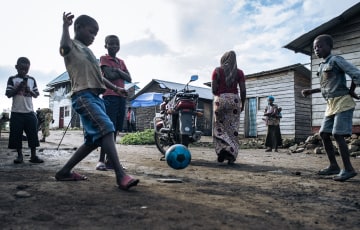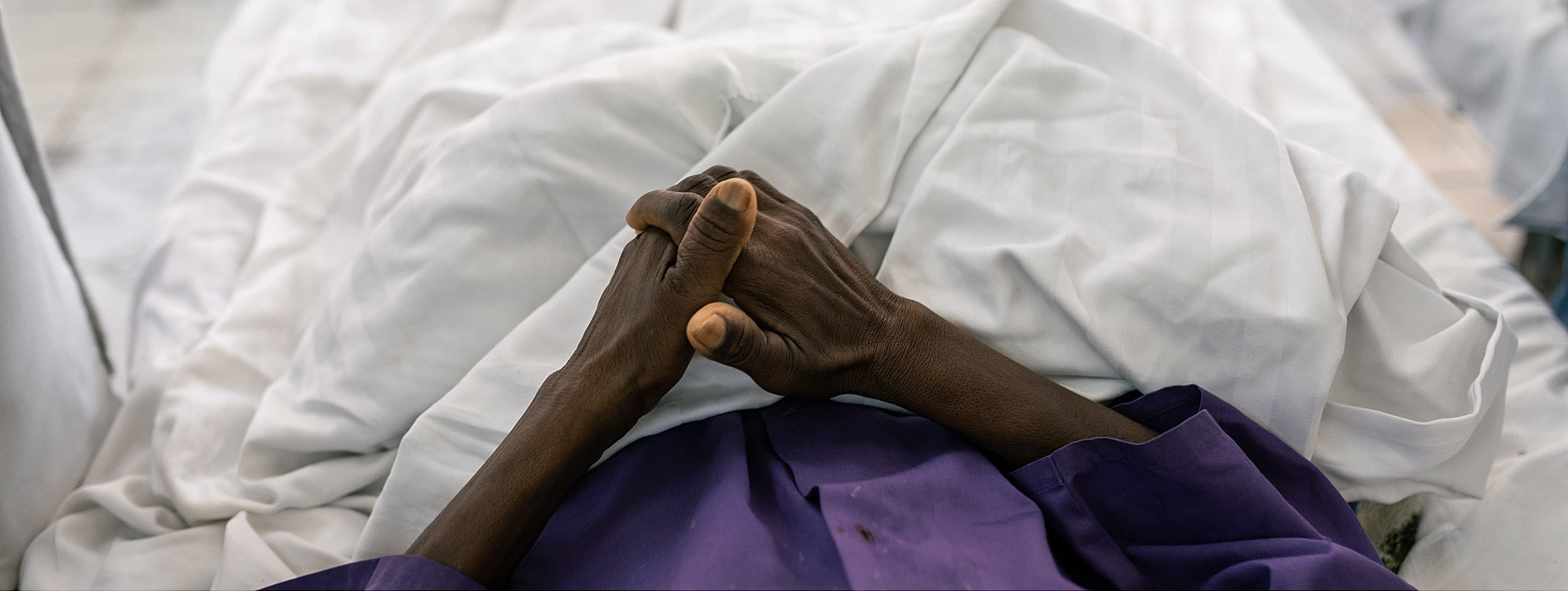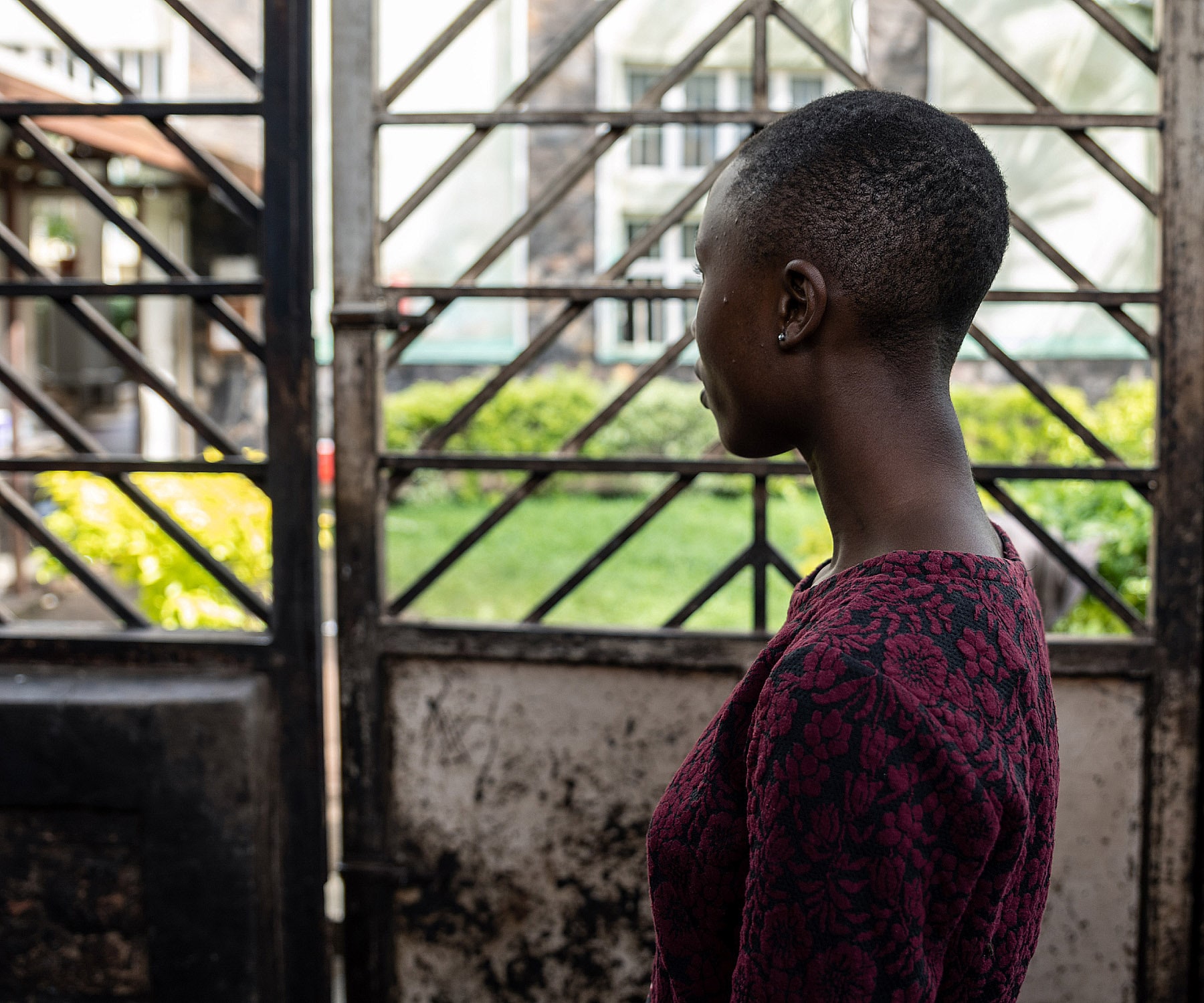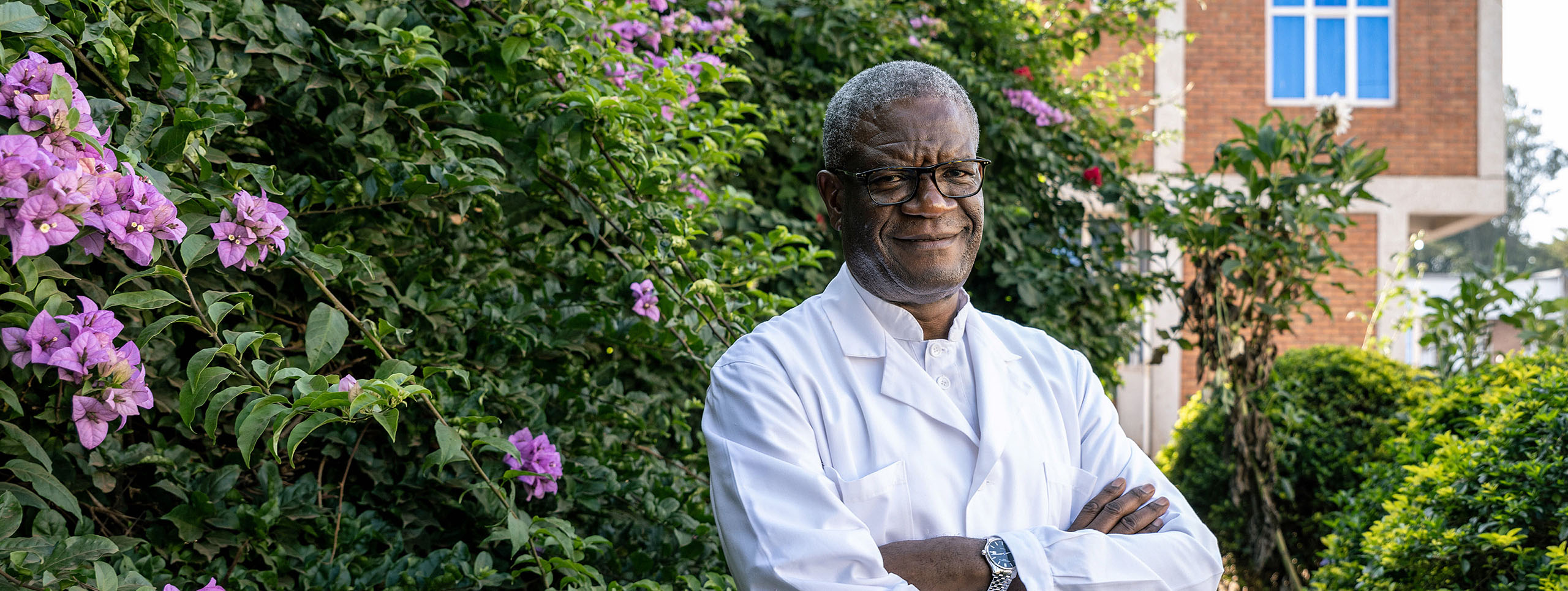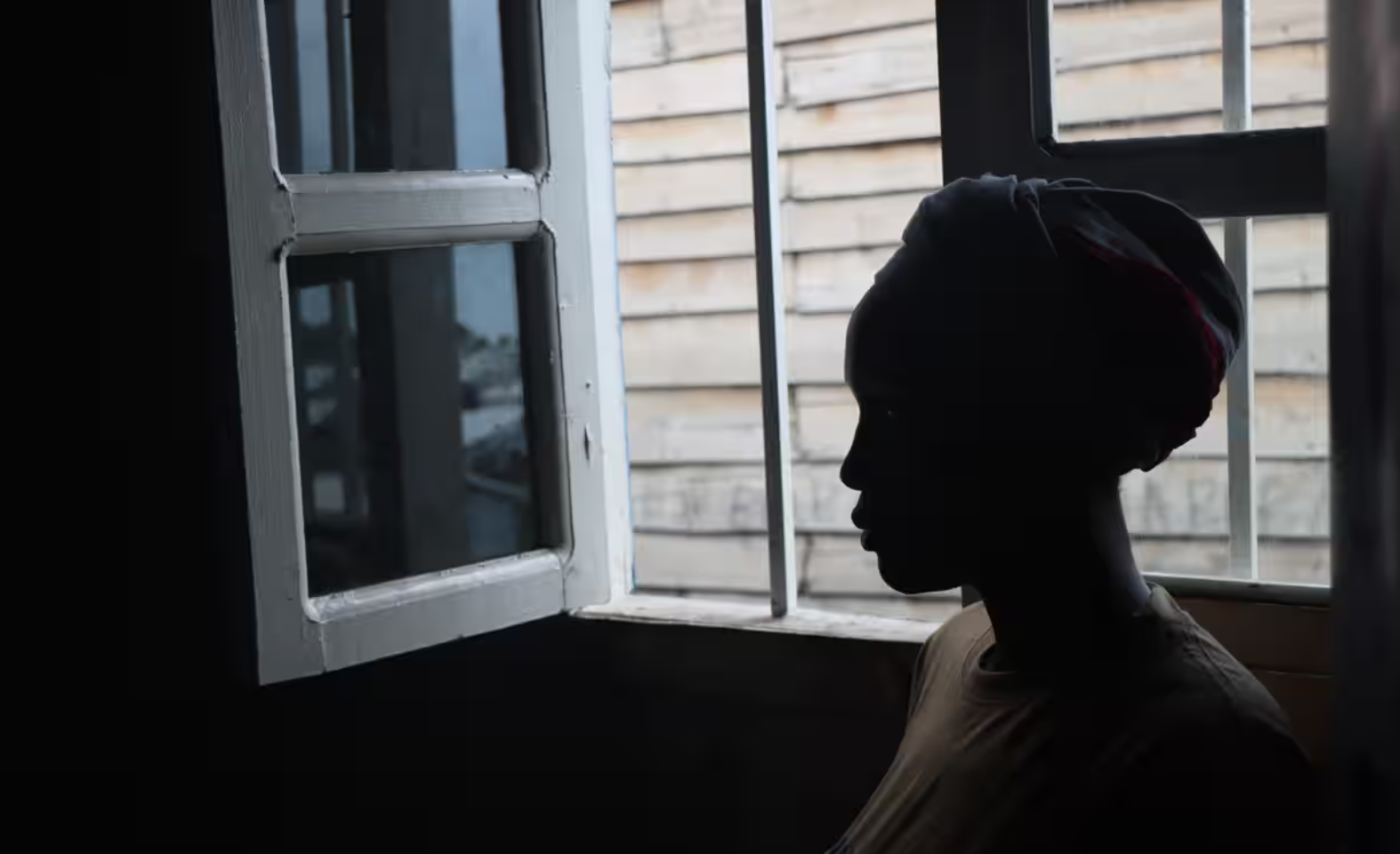Gender equality in health is essential to any effort to combat poverty and achieve sustainable development and peace. Gender is a central determinant of inequalities in health, both in access to and quality of health services. The TUMAINI project “Santé et droits des femmes, des adolescentes et des enfants” (Health and rights of women, adolescents and children) aims to reduce these obstacles by transforming unequal gender relations in sexual and reproductive health and rights (SRHR).
The results of the recent basic data survey1 carried out among patients of SRHR services in partner institutions of the project made it possible to explore the experience of these beneficiaries and to highlight these inequalities, which, due to lack of evidence, are often underestimated. As in most societies, the Democratic Republic of Congo (DRC) included, the burden of responsibility and family planning in sexual and reproductive health rests mainly on women. Indeed, women are overrepresented among beneficiaries of sexual planning services (94.6%), sexual health services (95.3%) and HIV and other STI prevention and treatment services (93.7%), despite the efforts of health institutions and civil society partners to promote male participation and empowerment at these levels. Despite the fact that they represent the vast majority of the patient base, it is clear that they face many barriers to accessing care specific to them.
In addition, there are economic barriers. Women are more likely to face financial difficulties in accessing care than men. Not only are fewer women than men members of a mutual health insurance plan (7.1% of women versus 17.3% of men) or holders of health insurance (9.4% of women versus 21.2% of men), but more women than men report that their uncovered medical expenses represent more than 25% of their personal annual income (46.7% of women versus 38.4% of men). As a result, a large proportion of beneficiaries surveyed (66.6% for women versus 43.1% for men) felt that it was unlikely that they would be able to cover their SRHR medical costs if they were to pay for them. These economic barriers may have a central importance on access to SRHR for these vulnerable beneficiaries. In fact, more than two thirds say that in the past year they have had to forego health care due to a lack of financial resources. These difficulties of access have major repercussions on the health of populations, particularly on maternal and child health. As one of the women interviewed pointed out, “I am still sick because I stopped care due to lack of resources.”
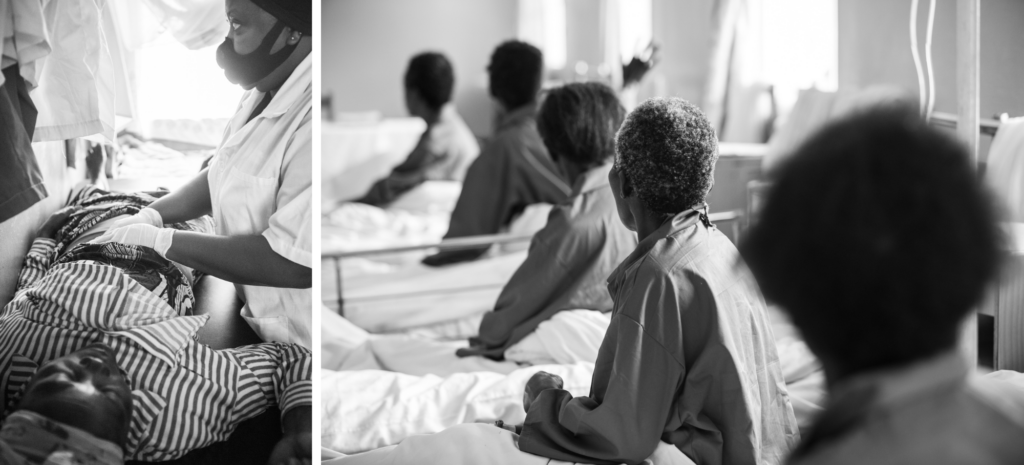
Inequities in access to care are of particular concern because many hospitals require a deposit before care can begin, even for maternal health care such as childbirth, leading many women to choose to give birth at home, with all the risks that entails. Even when they are able to find the financial means to access services, their care experience differs greatly from that of men.
Whether it is their general experience, their perception of the behaviour of health care staff towards them or their satisfaction with follow-up care, the quality of the services offered to them seems to affect women’s access to SRHR services. Many beneficiaries report having no mattress or blanket and often having to share their bed. Several women also deplore the hygiene conditions, particularly in maternity wards, delivery rooms and toilets in the institutions, which they consider to be inadequate (e.g., lack of access to water, cleanliness, etc.). Others criticize the disruption of supplies to SRHR services, whose unavailability of access to equipment and drugs can have a major impact on the health of patients. As one of the beneficiaries pointed out, [TRANSLATION] “[t]here is a lack of certain medical
equipment … and some medicines that can facilitate the treatment of patients are missing and this can lead to patients dying or having to be transferred to Bukavu (regional hospital).”
The experience of women’s health care beneficiaries with SRHR from the TUMAINI project highlights the importance of addressing the various barriers that promote gender inequalities in health in order to improve the delivery, management, and accessibility of health services.
1 Data related to the quality and use of health services by SRHR service beneficiaries were collected through a questionnaire consisting of closed-ended questions (108 items) and one open-ended question with a long answer. The collection was conducted in two phases, from 6/29/2022 to 7/22/2022 (survivors and vulnerable beneficiaries) and from 9/13/2022 to 9/21/2022 (other beneficiaries). A total of 771 beneficiaries of SRHR services at four centers and mobile clinics at partner institutions responded to the survey.
About the Tumaini Project:
Implemented by the Panzi Foundation with the Unité de santé internationale and the Observatoire Hygeia of the Université de Montréal, the TUMAINI project, Santé et droits des femmes, des adolescentes et des enfants, support the activities of Panzi Foundation and Hospital. Born of the vision of Dr. Denis Mukwege and the contribution of the Université de Montréal, the project will strengthen services for survivors of sexual and gender-based violence and the capacity of the Panzi Foundation in four health zones in South Kivu, Democratic Republic of Congo, and three provinces in Burundi. The three main components of the project are improving the delivery and management of health services, improving the socio-cultural, financial and geographical accessibility of health services, and promoting health care policies, legal frameworks and services based on research-based knowledge. The project involves several faculties of the University of Montreal and integrates a transversal component of operational research. The Tumaini Project is supported by Denis Mukwege Foundation, Lawyers Without Borders Canada and Global Strategies.
From an equity perspective, the initiative is structured to reach the most marginalized and vulnerable people. In order to ensure longevity and sustainability, the initiative anticipates strengthening local resources and subsequently integrating environmental, gender equality an




